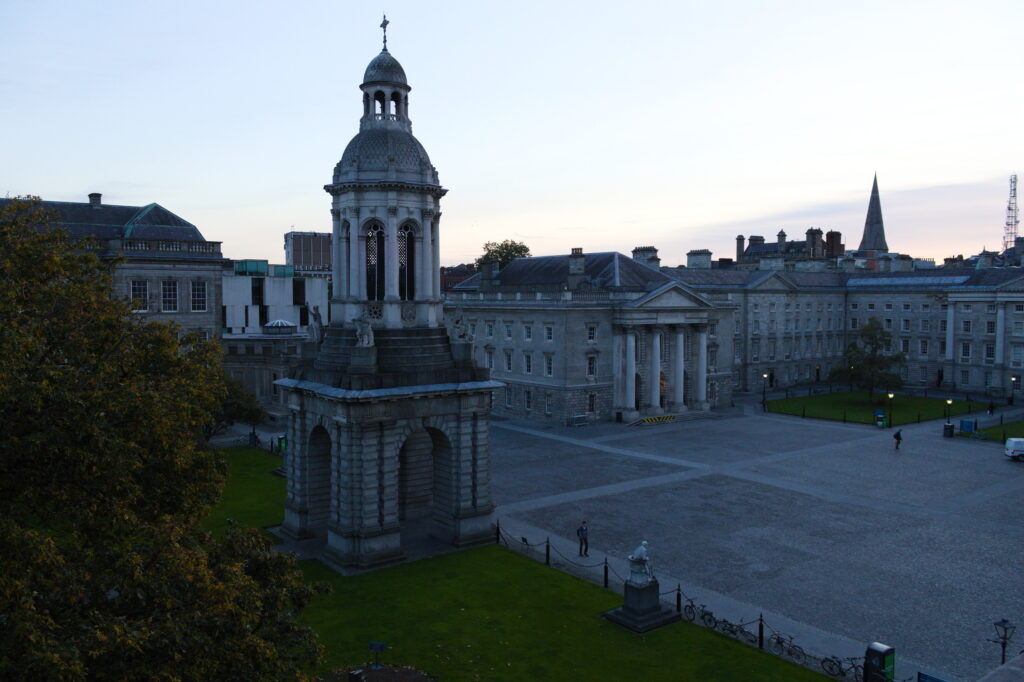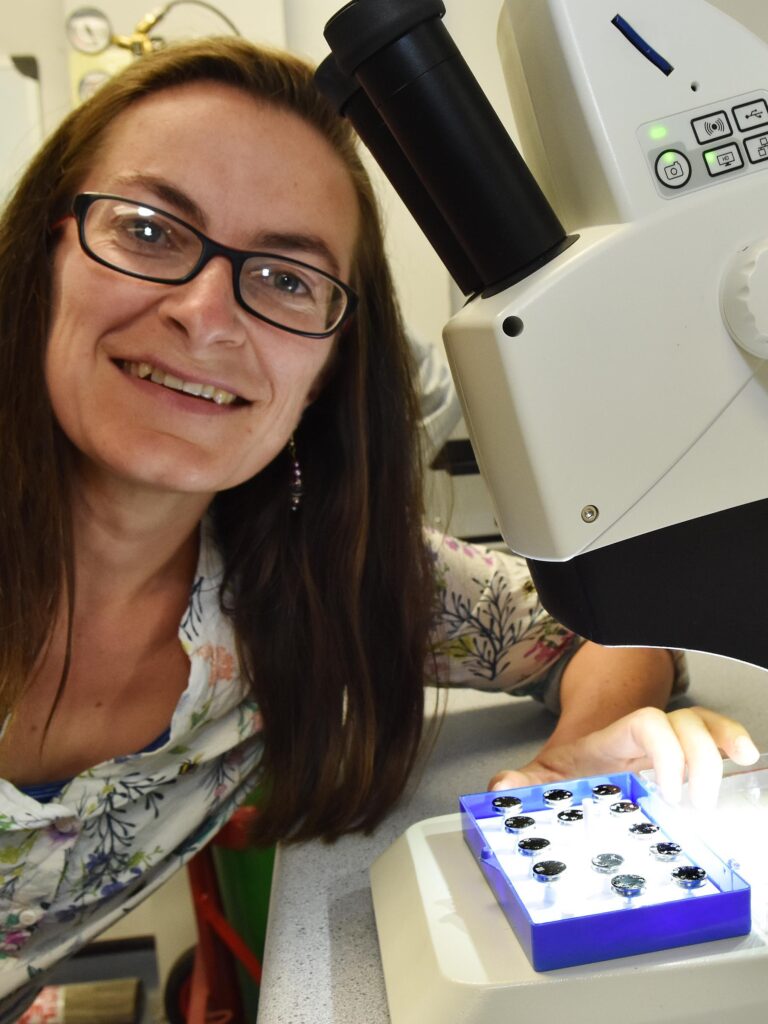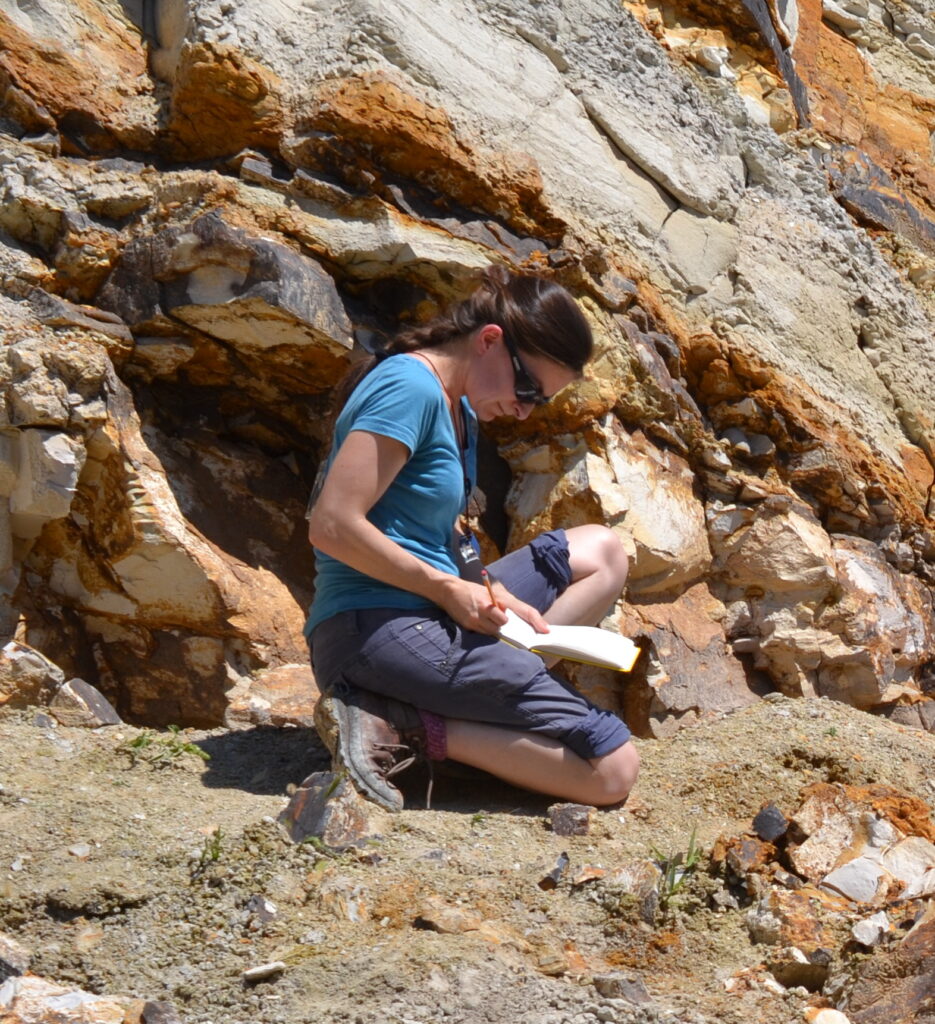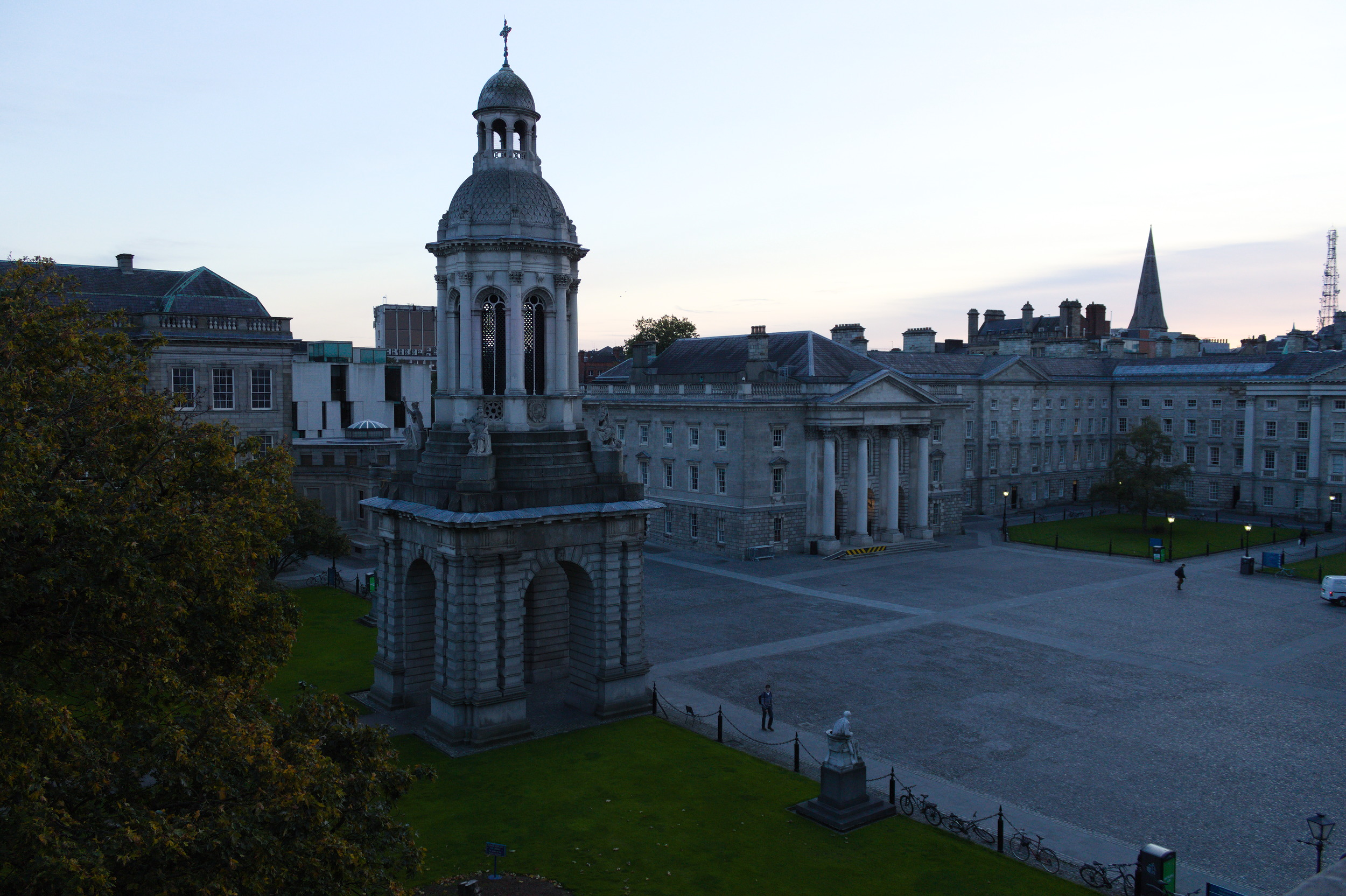Last month the Botany and Zoology departments at Trinity held their annual Postgraduate Symposium. Research students from both departments present a talk on recent and upcoming projects for their thesis, and the whole event is run by the students themselves. This is a big event for Botany/Zoology postgraduates not just because they get to show off their work and discoveries to the college community – it’s also great practice for future events, and students receive feedback on their presentations both from other postgraduates and from lecturers and professors in the two departments. Developing your ability to communicate your research is a crucial skill for all scientists. After all, what’s the point in discovering things about the natural world if you can’t share that knowledge!

As well as the postgrads, the symposium also invites guest keynote speakers to give talks. Speakers are invited not just for their research topics (although it is always an advantage to have guest speakers researching the most interesting and cutting-edge topics) but also for their career advice. The Botany/Zoology Postgrad Symposium is, naturally, for early-career researchers, so having speakers that can share their experience of going from early to established research careers is invaluable.
This year, the symposium hosted three speakers: Professor Mary Robinson (Adjunct Professor of Climate Justice here at Trinity College Dublin), Professor Maria McNamara (Professor of Palaeontology at University College Cork), and Doctor Saoirse Tracy (Assistant Professor of Applied Plant Biology at University College Dublin). Without exception, each speaker gave an inspiring and insightful talk of their work and the choices they made that shaped their career path. At the core of their advice to the postgraduate community was the simple but powerful message, “Do not be dissuaded from doing what you love”.
The symposium was very lucky to have speakers who shared their personal experiences so open and honestly, and who have such varied and interesting careers and research areas to share. From the editors of the EcoEvo blog, we’d like to extend our thanks on behalf of the Botany and Zoology departments at Trinity once more for making the 2021 Postgraduate Symposium such a success. We would also like to extend a special thank you to Prof. Maria McNamara and Dr. Saoirse Tracy who, in addition to speaking at the symposium, were happy to provide a short interview for the EcoEvo blog! We are delighted to include them among the EcoEvo contributors to share their advice for anyone who couldn’t make it to the symposium (or just wants to hear more), so without further preamble let’s give them a proper introduction and get to the interview.

Dr. Tracy completed her BSc in Environmental Science and received her PhD from the University of Nottingham, U.K. She started in UCD in 2015. She is interested in how plants interact with their environment, especially belowground with soil. She researches how roots grow in response to their physical environment using non-invasive imaging.

Professor Maria McNamara, Professor of Palaeontology at University College Cork. She is one of the only scientists in Ireland to hold two grants from the European Research Council (she is currently finishing a €1.5M Starting Grant and has already been awarded a €2.4M Consolidator Grant). Her research uses advanced electrobeam and spectroscopic approaches to studying fossil soft tissues in order to better understand the evolution of animal physiology and behaviour over millions of years. She is passionate about science communication and about our unique capacity as scientists to understand how the world works. She actively works with the public to inspire future generations to truly look at, and appreciate, the natural world and our place within it.
Interview
EcoEvo: While we have said just a little bit about each of you above and everyone at the symposium has had a chance to hear you speak, not all our EcoEvo readers will have been able to attend so let’s start by learning a little more about what you do and what you enjoy doing. What aspects of your research and work are you passionate about? The things that keep it interesting for you and you’re most excited to share?
Dr. Saoirse Tracy: I am fascinated by the fact that plants and soil are central to our existence on this planet, yet we still know so little about what is happening under our feet and how we can secure our food production for future years. The resilience that roots show and how they overcome obstacles to maintain shoot growth under extreme conditions is amazing. I use X-ray technology to get a view of how roots grow in soil, with the aim to feed this information back to growers. I really enjoy supervising the next generation of scientists, getting them excited about roots and then also learning from my students too.
Prof McNamara: My favourite part of my job is, and has always been, research. I’m a microscopist at heart so I love all aspects of my work that operate at the micro-scale – electron microscopy, micro-FTIR, micro-Raman, micro-synchrotron work…. I love working with tiny samples and the satisfaction of picking and mounting tiny things for study! That said, I also really enjoy the physicality of fieldwork, with all of the associated pros and cons of working day in and day out in the field, sometimes in a foreign country. Other things I really enjoy include the challenges of designing new experiments – I love solving problems, especially bouncing ideas around with other members of my research group and colleagues. I also love writing, and the process of refining a piece of written work into something more concise and streamlined. And I really love working with the public, especially kids – it helps to keep me grounded and connected with “real” people! Over the course of my career I have come to enjoy teaching more, as I expand my own knowledge and can relax a little more coming into lectures, and also by finding new ways to make the lectures and practicals fun and a little bit different, and by communicating something of the excitement of research. I care much less now about appearing professional – I especially felt pressure as a young female lecturer that I had to be serious and “grown up” – nowadays I don’t care if the students think I’m mad if I laugh at myself or rant about science research in a lecture or practical.

EcoEvo: It sounds like you both love your research and teaching, so I guess if you get a handle on both you’ll be alright in your career! All of us that presented in the symposium are what you’d call early-career researchers – we’re hungry for any advice more experienced people in the field can give that might aid our career development. Have there been any defining moments or achievements in your careers that stand out to you? And is there anything we should keep in mind when it comes to our own defining moments?
Dr. Saoirse Tracy: Firstly, I think you need a genuine passion or interest. If you are curious this will help you initiate the projects, but a good deal of determination and stubbornness is required to see the project through to completion. The people around me often impact on my mood, so having peers you can have a laugh with is crucial. I have worked and currently work with some brilliant scientists and that literally makes my job awesome and worth the hard work. Apply for those jobs, grants or courses even if you don’t think you are ready and even if other people around you say you are not, just do it anyway. Be mindful of the advice you get, sometimes it comes with an agenda. So just do what is best for you in the long run.
Prof McNamara: I guess the pivotal transition in my career came when I left academia mid-way through my first postdoc to work in science communication. I was completely burnt out after writing up and the postdoc didn’t go according to plan – a key technique didn’t work and I was having difficulties translating big ideas into tangible results. I started thinking about trying out other types of careers but was advised not to leave academia, that I’d never get back in, that I would have a gap in my CV, etc. etc. Despite this I jumped at the opportunity to work in what is now the Burren-Cliffs of Moher Geopark for a year. It was a critical time for me as I proved to myself that I could succeed “in the real world” and that was really important for my self-confidence. The job also rekindled my passion for my subject – it reminded me why I became a geologist in the first place. Finally that year gave me the breathing space to think about what I really wanted to do with my life! As the year progressed I kept thinking about research ideas and so despite the fact that I loved my public outreach job, I realised that I couldn’t leave the discoveries and excitement of research behind. I applied for a Marie Curie international fellowship, ended up going to Yale in the USA for three years and never looked back.
EcoEvo: I can’t speak for everyone but I’ve already spent a lot of time correcting mistakes I made early on. Is there anything you’d like to go back in time and change in your careers, if you could?
Dr. Saoirse Tracy: I wish I had more belief in myself at a younger age and strode into my career assertively, I certainly think I took baby steps, but that is probably just my personality type. My confidence is building every year which is empowering. I would probably want to pursue more computer science skills at school, as I now know how useful they are, I didn’t as a child (showing my age now).
Prof McNamara: I would tell myself to take 6 months off after handing in my PhD thesis. I was totally burnt out and my brain didn’t work properly for a long time. I felt very guilty about “wasting” time. Other than that, looking back at myself as a young PI, I would probably give myself some advice on how to hire new group members. I feel that I have learned a lot over the years about what kind of people I want to work with. That said, I’m not sure I would be here as I am now if it weren’t for some tough times in the past, so if push came to shove I actually wouldn’t change anything.
EcoEvo: The idea of taking a break after your PhD is certainly an appealing idea! And improving your coding skills sounds like a fun and useful way to use that time. You might have just given me an idea!
We’re very grateful to have had you speaking at our postgraduate symposium and I hope the experience was rewarding for you as well. It can be daunting for organizers to seek out the best keynote speakers for events like this – is there anything you look for in symposia and other events that, as a speaker, makes you want to get involved, or even steer well clear of? (After all, some of us might be invited as keynote speakers in the near future!)
Dr. Saoirse Tracy: I would look at the topic of the symposium and ideally a draft programme to see that the content would be worthwhile my time to attend. I have spoken at a few events run by PhD students and they are always very well organised and enjoyable to attend. I avoid predatory invites, which is when you get an email to speak at a conference that could be fake (check the conference website) or in a discipline outside of your expertise. If the person who invites you knows you, or has a colleague that has recommended you that you know that is helpful.
Prof McNamara: I check whether if the symposium or conference is relevant and legit, and whether it clashes with e.g. teaching, fieldwork, or another major conference. Every week I get dodgy-looking invites to conferences that have no direct relevance to my work. So I would check out the organisers. Who are they? Have they published in the area? Who are their collaborators / supervisors / mentors? What is their agenda with respect to the symposium and me as a speaker? Have they a good balance of speakers / invited speakers, considering topics, gender, career stage?
EcoEvo: I’d never heard of predatory invites before. I guess that’s something you encounter more when you’ve built up your career a bit. But it’s also reassuring to know PhD students can be trusted (for the most part).
I think we’ll leave it there as this blog post is in danger of turning into a short book! Thank you both very much once more for speaking at the symposium and agreeing to this interview. It’s been a genuine pleasure and I’m sure our readers will get a lot out of it. I look forward to seeing you at conferences in the future!

